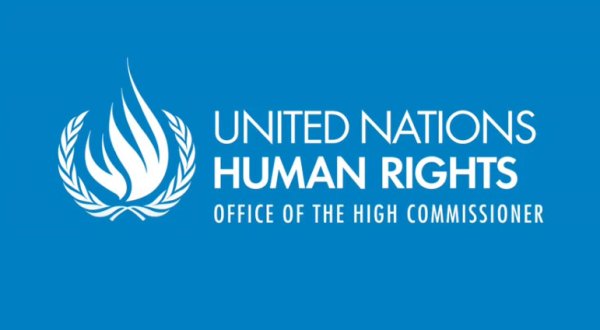Members of Kazakhstan’s government presented the country’s most recent report on Kazakhstan’s implementation of the Convention against Torture and Other Cruel, Inhumane and Degrading Treatment or Punishment on Nov. 18 to the UN Committee Against Torture in Geneva.
 Deputy Minister of Internal Affairs Rashid Zhakupov, who introduced the report to the committee, stated that Kazakhstan’s Constitution fully prohibited the use of torture or ill treatment and that the government had adopted measures to establish a zero tolerance for torture policy.
Deputy Minister of Internal Affairs Rashid Zhakupov, who introduced the report to the committee, stated that Kazakhstan’s Constitution fully prohibited the use of torture or ill treatment and that the government had adopted measures to establish a zero tolerance for torture policy.
Zhakupov noted that Kazakhstan adopted a strategy to modernise its system of human rights protection in 2010 that strengthened the independence of the judiciary. The new mechanism requires court authorisation for investigative actions, reducing the number of arrests by a factor of three and the number of juvenile arrests by a factor of seven.
The new Criminal Procedure Code recognises the inalienability of human dignity and protects everyone from cruel treatment, he said. Evidence obtained through torture is considered unlawful and cannot be accepted by a court of law. The presumption of innocence is now the fundamental principle at the heart of criminal procedure.
Authorities are obliged to investigate all allegations of torture, said Zhakupov. Although there have been very few complaints of torture reported, all complaints were fully investigated and all perpetrators were held criminally liable. Furthermore, victims of torture are entitled to free judicial and medical assistance. A law creating a compensation fund is being drafted.
Felice Gaer, a committee expert acting as Kazakhstan’s country rapporteur for the report, said that there continues to be a gap between the expanded legal framework and the reality of the situation on the ground. However, the rapporteur noted positive developments in the legal system that prohibit and protect against torture, including the creation of a national preventive mechanism and a zero tolerance policy for torture related crimes.
The committee took special interest in the events that took place in Zhanaozen in late 2011 where a labour dispute resulted in a deadly riot. A delegate said that more than 200 investigations had been undertaken and more than 1,200 witnesses had been interviewed. For the first time in Kazakhstan, a public committee had been formed to monitor the investigation; the committee consisted of members of political parties, non-governmental organisations, the media, medical and legal experts and representatives of penal reform organisations. Of the 97 persons who stood trial, 16 received sentences and five police officers were criminally charged for their conduct in curbing the riots, the delegate said.
The delegation also shared the progress of medical treatment provided to inmates. Medical services in the penitentiary system are soon to be transferred to the Ministry of Health and Social Development. Registration of each detainee with the primary health service to facilitate their access to preventive care was initiated. In addition, a budget of $250 million was allocated to fight tuberculosis in 2014. Kazakhstan has one of the most precise electronic tuberculosis registration systems and as a result, over the last five years, the mortality rate has decreased by 65 percent and morbidity rate by more than 30 percent.
The legal definition of torture in Kazakhstan is identical to that of the Convention against Torture, which defines torture as “any act by which severe pain or suffering, whether physical or mental, is intentionally inflicted on a person for such purposes as obtaining from him or a third person information or a confession, punishing him for an act he or a third person has committed or is suspected of having committed, or intimidating or coercing him or a third person, or for any reason based on discrimination of any kind, when such pain or suffering is inflicted by or at the instigation of or with the consent or acquiescence of a public official or other person acting in an official capacity. It does not include pain or suffering arising only from, inherent in or incidental to lawful sanctions.”
Kazakhstan’s delegation included representatives of the Commission on Human Rights under the President, Supreme Court, Prosecutor General’s Office, Ministry of Education and Science, Ministry of Internal Affairs, Ministry of Health and Social Development, Ministry of Foreign Affairs, National Centre for Human Rights, the Union of Crisis Centres of Kazakhstan which is an association of legal entities and members of the Permanent Mission of Kazakhstan to the United Nations Office in Geneva.
At the end of the session, Committee Chairperson Claudio Grossman thanked the delegation for the discussion and reiterated that zero tolerance for torture is a goal of the Convention against Torture.

